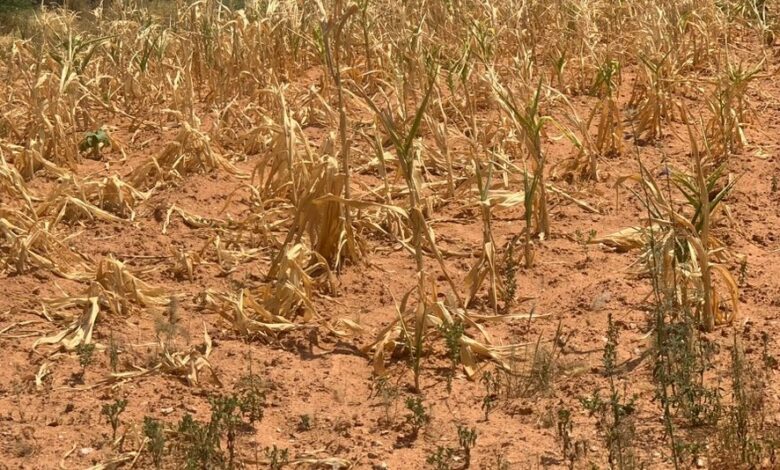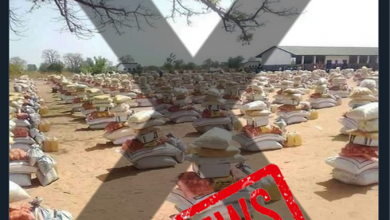Zim declares disaster as El Niño ravages crops, leaving 680k grain deficit

Due to drought, Zimbabwe has declared a State of Disaster, with President Emmerson Mnangagwa saying the country faces a food cereal deficit of about 680 000 metric tonnes of grain.
Zimbabwe is the latest country in the region to declare a state of disaster after much of its crops were ravaged by El Niño, buttressing concerns raised by the UN World Food Programme (WFP) late last year that numerous nations in southern Africa were on the brink of a hunger crisis since millions in southern Africa rely on the food they grow to survive.
This declaration follows Malawi and Zambia having appealed for help, due to a severe dry spell caused by the El Niño weather phenomenon that threatened food supply.
Zambia was the first to announce the drought disaster in February 2024 while Malawi followed suit in March this year.
“Dear Zimbabweans; The foregoing situation of the climate change-induced drought requires measures and interventions as provided for in our laws. To that end, I do hereby declare a nationwide State of Disaster, due to the El Nino- induced drought,” announced President Mnangagwa on Wednesday.
El Niño is a natural, recurring weather phenomenon involving the warming of the sea surface in parts of the Pacific Ocean.
It impacts global weather, including causing below-average rainfall in southern Africa, with some scientists noting that climate change is making El Niños stronger and their impacts more extreme.
In declaring the disaster, the president said he was invoking Section 27, Subsection 1 of the Civil Protection Act (Chapter 10:6), which states:
“If any time it appears to the President that any disaster of such a nature and extent that extraordinary measures are necessary to assist and protect the persons affected or likely to be affected by the disaster in any area of the country, the Presidency may, in such a manner as he considers fit, declare that, with effect from a date specified by him, a state of disaster exists within an area or areas specified by him in the Declaration.”
President Mnangagwa said the country faces a food cereal deficit of nearly 680 000 metric tonnes of grain, whose deficit will be bridged by imports.
“We expect 868 273 metric tonnes from this season’s harvest, hence our Nation faces a food cereal deficit of nearly 680 000 metric tonnes of grain. Measures to encourage private sector participation are already in place. Top on our priority is securing food for all Zimbabweans. No Zimbabwean must succumb to, or die from hunger,” said the president.
The WFP said nearly 50 million people in southern and parts of central Africa faced food insecurity even before one of the driest spells in decades hit.
According to the WFP’s seasonal monitor, February was the driest in 40 years for Zimbabwe and Zambia while Malawi, Mozambique and parts of Angola had “severe rainfall deficits.”
USAID, the US government’s relief aid agency said more than 20 million people in southern Africa would urgently need food aid in early 2024, partly due to the El Niño effect.
The 2015 to 2016 El Niño also brought a severe drought for southern Africa, which was the region’s worst in 35 years, according to the UN Office for Humanitarian Affairs.






